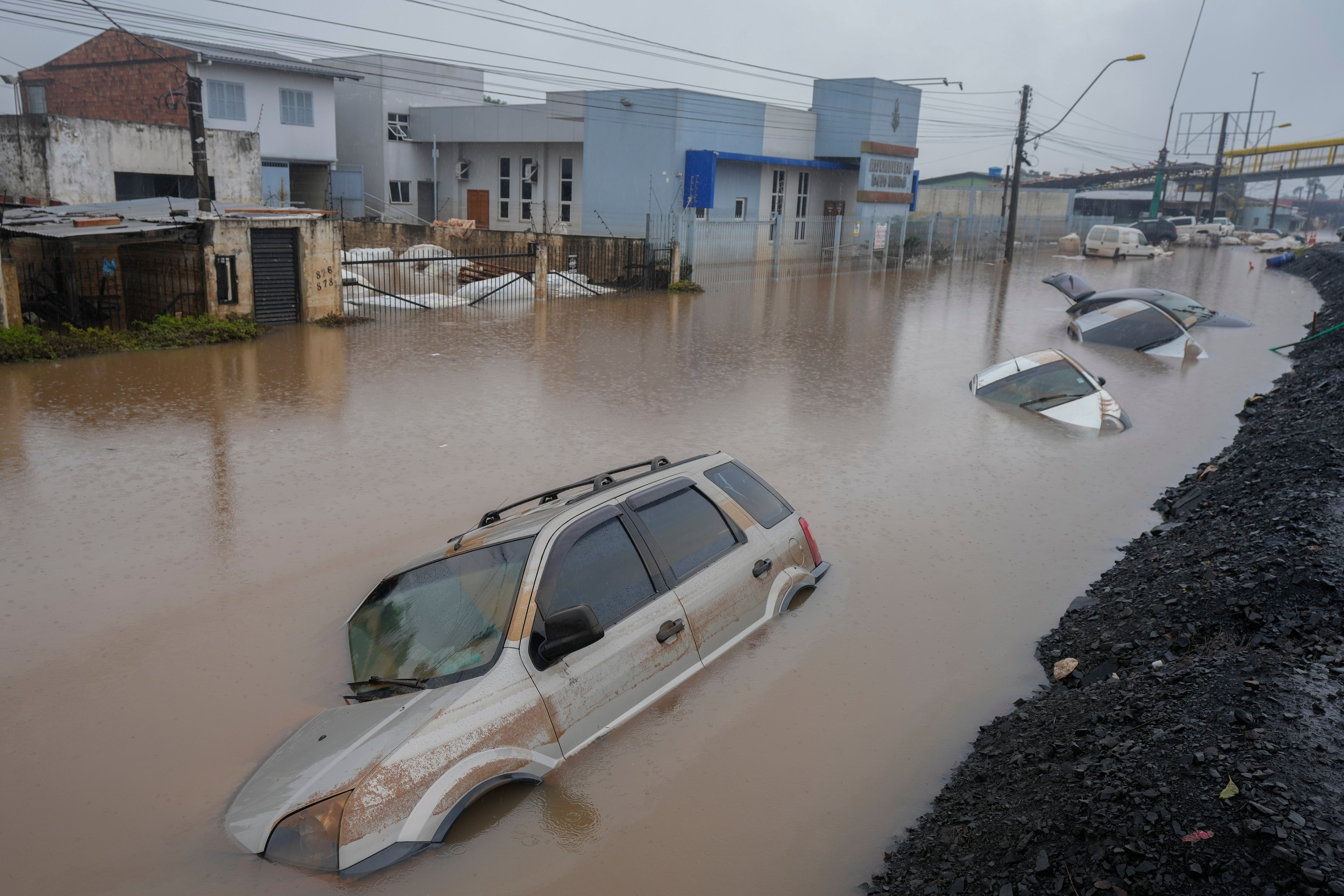Brazil's flooded south sees first death from disease, as experts warn of coming surge in fatalities
Health officials in Brazil say the first death from waterborne bacterial disease has been reported in the country's south, where floodwaters are slowly receding

Your support helps us to tell the story
From reproductive rights to climate change to Big Tech, The Independent is on the ground when the story is developing. Whether it's investigating the financials of Elon Musk's pro-Trump PAC or producing our latest documentary, 'The A Word', which shines a light on the American women fighting for reproductive rights, we know how important it is to parse out the facts from the messaging.
At such a critical moment in US history, we need reporters on the ground. Your donation allows us to keep sending journalists to speak to both sides of the story.
The Independent is trusted by Americans across the entire political spectrum. And unlike many other quality news outlets, we choose not to lock Americans out of our reporting and analysis with paywalls. We believe quality journalism should be available to everyone, paid for by those who can afford it.
Your support makes all the difference.The first death from waterborne bacterial disease was reported in southern Brazil, where floodwaters were slowly receding, and health authorities warned additional fatalities were likely.
Rio Grande do Sul state's health secretariat confirmed the death of a 67-year-old man due to leptospirosis on Monday, while local media reported a second death from the same infectious disease.
The flooding over about a two-week period killed at least 161 people, with 82 still missing, state authorities said Wednesday. More than 600,000 people were forced from their homes, including tens of thousands who remain in shelters, they said.
Health experts had previously forecast a surge in infectious diseases including leptospirosis and hepatitis B within a couple weeks of the floods, as sewage mixed into the floodwaters.
“There are those who die during the flood and there is the aftermath of the flood,” said Paulo Saldiva, a professor at the University of Sao Paulo medical school who researches the impacts of climate change in health. “The lack of potable water itself will mean that people will start using water from reservoirs that is not of good quality.”
The unprecedented disaster struck more than 80% of the state’s municipalities and damaged critical infrastructure. Over 3,000 health establishments — hospitals, pharmacies, health centers, and private clinics — were affected, according to a report from the federal government's health research institute Fiocruz released Tuesday.
“The outbreak of leptospirosis cases was somewhat expected due to the number of people exposed to the water, as well as other diseases,” said Carlos Machado, a public health and environmental expert who Fiocruz appointed to track the flood’s impact. “We have never seen in Brazil a disaster of this size and with such a large exposed population.”
Machado said that even though infrastructure, basic control services and health services have been disrupted, the local health department is working to offer prophylaxis to infectious diseases and guidance to people returning home on how to reduce the exposure risks.
Interruption of health services can also have a lasting impact on patients treating chronic diseases, as treatment and care for chronic patients are discontinued, Machado said. People also often leave home during climate disasters without their prescriptions or identification.
“The health department is working hard to guarantee medication to patients with chronic diseases,” he said.
___
Follow AP’s climate and environment coverage at https://apnews.com/hub/climate-and-environment